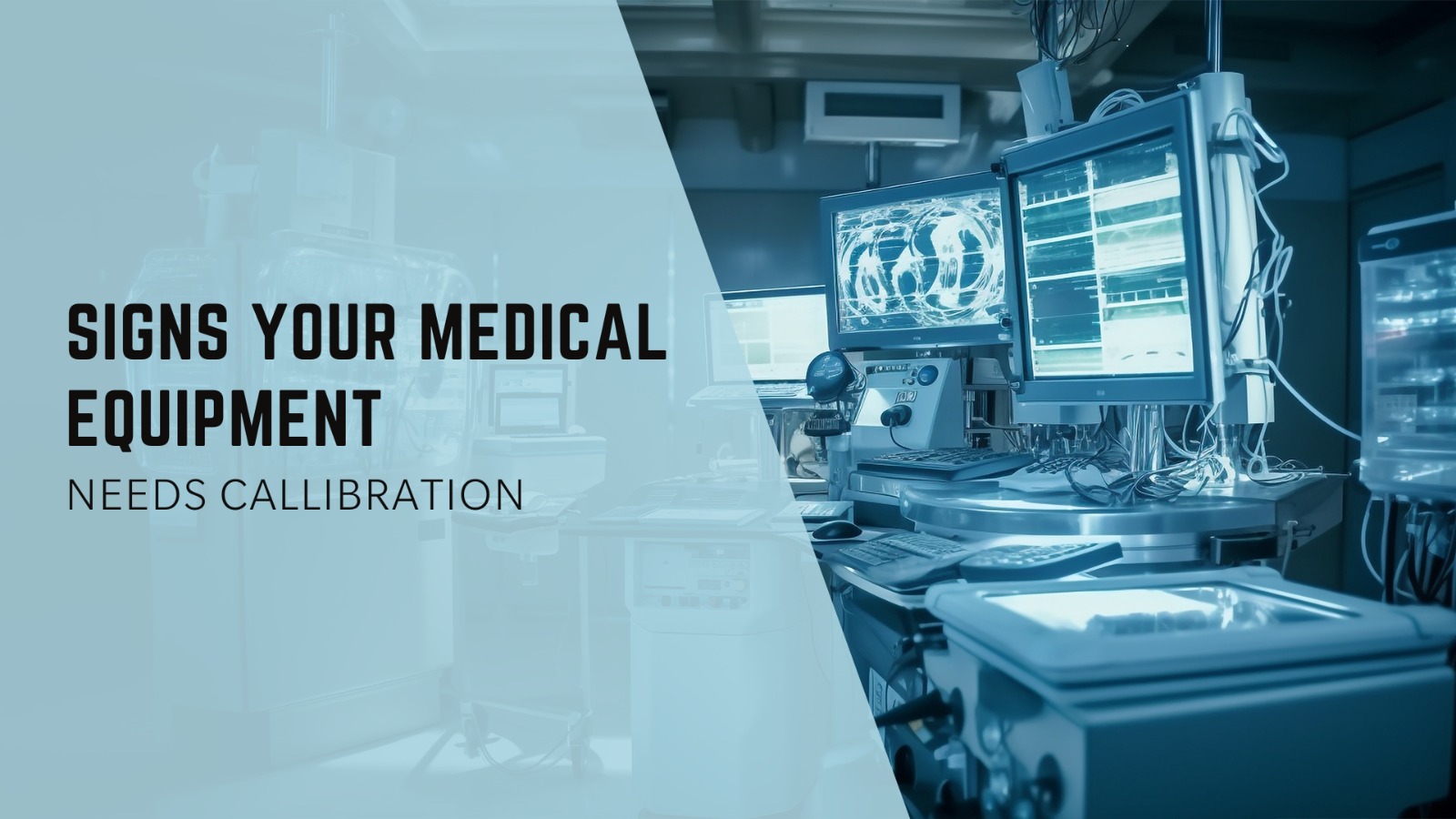
Precision is vital in the healthcare and diagnostic world. Just one misread, even a tiny deviation, can lead to misdiagnosis or an unsafe procedure. This is why medical equipment calibration and biomedical calibration are important in making sure that each reading is accurate, reliable, and meets regulatory standards.
Whether you are managing a hospital, a diagnostics lab, or a biomedical service department, knowing the signs that your medical equipment needs calibration will help minimize downtime and keep your patients safe.
Calibration ensures your medical equipment is functioning within the accuracy specifications of the manufacturer. Biomedical calibration is the process of having a technician document the reading of the medical instrument and compare it to another known standard to determine the accuracy of the readings. These readings may have disastrous consequences, especially with instruments such as defibrillators, patient monitors, or infusion pumps, where even slight variations can have a significant impact on patient care.
When it comes to electrical safety and performance testing, Electrical Safety Analyzer Calibration provides confidence that devices used to assess leakage currents, insulator resistance, and grounding assurance are used for both patient and operator safety.
1. Inaccurate or Unreliable Readings
Variability in your device’s measurements, or reading variations from reference readings, signifies that the medical equipment is due for calibration. Medically, inaccurate readings impact test outcomes and potentially take the patients’ lives into consideration.
2. Continuous alarm alerts on diagnostic equipment
Non-stop false alarms or errors may suggest a drift of sensors or calibration issues inside the equipment. Biomedical calibration will catch many of these issues and assist in ensuring that false alarms do not develop into a patient safety issue.
3. Electrical Safety Tests Fail
When a piece of equipment fails electrical leakage testing or grounding, the calibration of the Electrical Safety Analyzer needs to be completed right away. The Electrical Safety Analyzer is the most important instrument to make sure the testing equipment used to check electrical safety is accurate!
4. Failing preventive maintenance checks
If your devices don't actually pass the performance verification checks during properly scheduled preventive maintenance, this is often the issue of calibration. Recalibrating before the next scheduled preventive maintenance is often recommended to ensure accuracy and compliance.
5. Following repairs or repairs
If a component becomes broken on the device, a part such as a sensor or display or the sensors or internal boards needs to be changed, calibrate the equipment to ensure the readings can still trace accurately and comply with national or international accuracy standards.
How often is medical equipment calibrated?
Most hospitals and laboratories are on an annual or biannual schedule, but frequently used or essential equipment may be calibrated sooner.
What does Electrical Safety Analyzer Calibration do for me?
It will help ensure that the testing devices that evaluate electrical safety function correctly, and this will aid in preventing and/or mitigating shock risk and device failure.
Is calibration different from preventive maintenance?
Yes - calibration deals specifically with accuracy, whereas preventive maintenance is typically focused on mechanical checks and functional checks. Both are important in keeping medical equipment reliable.
Who should perform medical equipment calibration?
Only NABL-accredited labs like Roots Metrology should perform medical equipment calibration and Electrical Safety Analyser Calibration, ensuring traceability and compliance with industry standards.
Proper calibration is not only a matter of compliance, but it is meant to protect the patient, reliability of performance, and confidence in medical findings. Medical equipment calibration and Electrical Safety Analyser Calibration will help healthcare facilities:
Calibration is the heartbeat of medical accuracy. By ensuring your medical equipment is routinely calibrated, every test, diagnosis, and treatment will be based on accurate data. When you choose a trusted provider of service such as Roots Metrology, you can have even more confidence in the quality and safety of your device.
Roots Metrology helps ensure precision with services, from Electrical Safety Analyzer Calibration to thorough biomedical equipment calibration and validation, which healthcare respects— which is why every read matters.